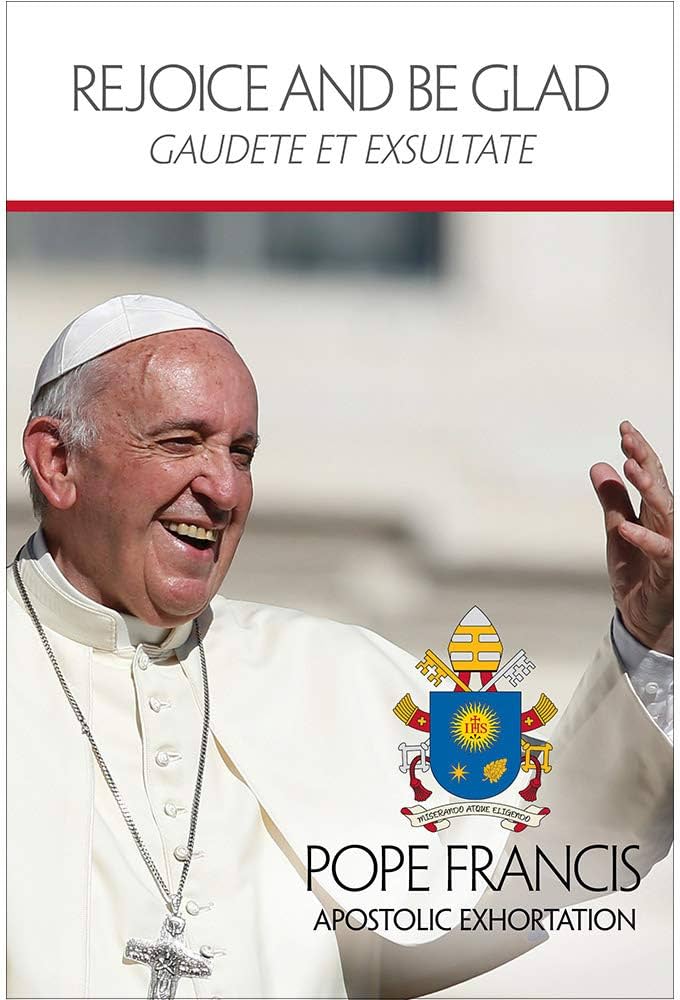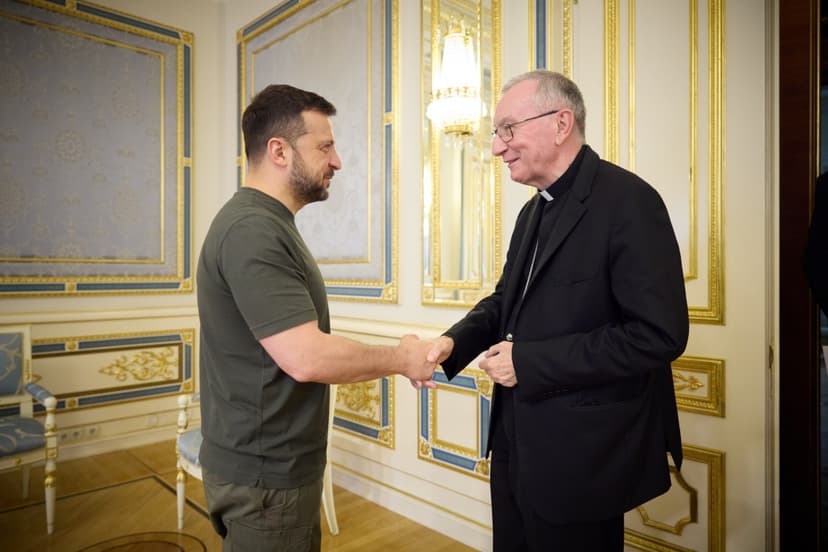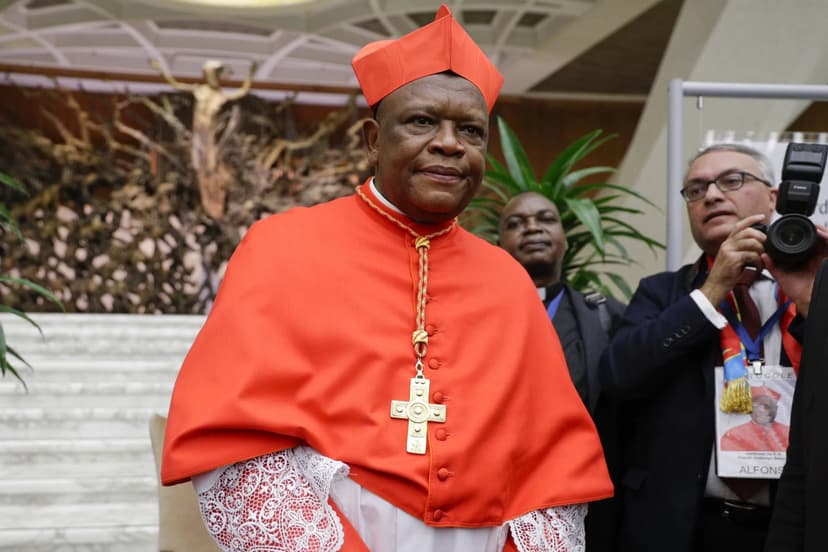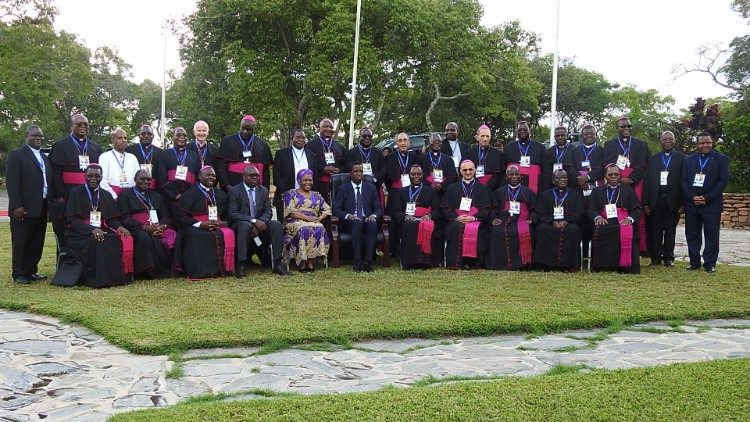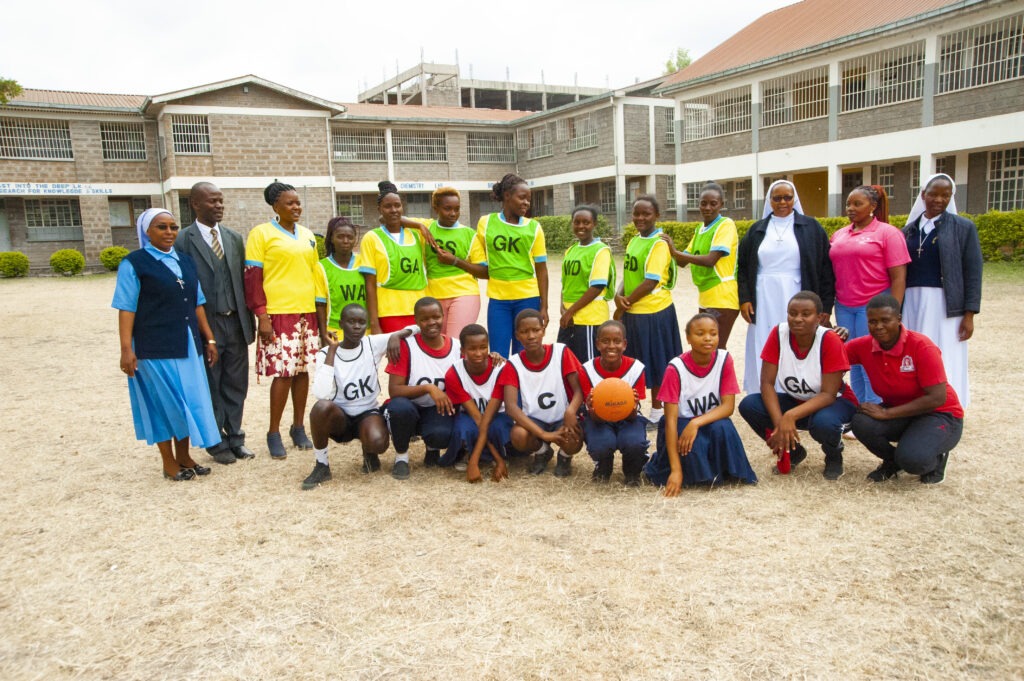Gaudete et Exsultate (GE) is the third Apostolic Exhortation issued by Pope Francis, following Evangelii Gaudium (2013) and Amoris Latetitia (2016). It is a call to holiness of life, clearly echoing the universal call to holiness found in Vatican II’s Lumen Gentium chapter five; it is dated March 19, 2018, the feast of Saint Joseph, the fifth anniversary of Francis’ inauguration as pope in 2013.
Introduction. Gaudete et Exsultate (GE) is meant to be very practical; it is not intended to be a total synthesis of holiness or spirituality today. Its title emerges from scripture, specifically Matthew 5:12, where Jesus advises his disciples to “rejoice and be glad”—even in the midst of life’s trials. Francis notes: “My modest goal is to re-propose the call to holiness in a practical way for our own time” (2). The Lord “wants us to be saints and not to settle for a bland and mediocre existence” (1).
The Call to Holiness. There are many forms of holiness, and in our holiness pilgrimage, “we are in the company of the great saints, martyrs, and witnesses who sustain us in our journey” (4). “We are all called to be witnesses, but there are many actual ways of bearing witness” (11). Francis praises what he calls “the middle class of holiness” (7); this includes parents, workers, sick/elderly, grandparents. Holiness is often found “in our next-door neighbors” (7). A simple norm is: “Each in his or her own way” (11). “For God’s life is communicated to some in one way and to others in another” (11).
“This holiness to which the Lord calls you will grow through small gestures” (16). We “need only find a more perfect way of doing what we are already doing” (17). “A Christian cannot think of his or her mission on earth without seeing it as a path of holiness” (19). “You too need to see the entirety of your life as a mission” (23). “Life does not have a mission, but is a mission” (27). Francis quotes the words of Leon Bloy: “The only great tragedy in life is not to become a saint” (34).
Two Subtle Enemies of Holiness. Pope Francis mentions two false forms of holiness that “can lead us astray” (35): gnosticism (belief that salvation can be had through “special knowledge”) and pelagianism (belief that we can attain salvation through our own human efforts) (35). He quotes Saint Bonaventure who pointed out that “true Christian wisdom can never be separated from mercy towards our neighbor” (46). We must constantly recall that “our life is essentially a gift” (55).
Following Jesus. The third chapter centers on the example of Jesus, specifically on the Beatitudes and Matthew 25:31-46 (Last Judgment narrative). “The Beatitudes are like a Christian’s identity card” (63). Yes, we radically defend “the innocent unborn,” but “equally sacred … are the lives of the poor, those already born, the destitute, the abandoned and the underprivileged, the vulnerable infirm and elderly exposed to covert euthanasia, the victims of human trafficking, new forms of slavery, and every form of rejection” (101). “Mercy is the very foundation of the Church’s life” (105).
Five Signs of Holiness. First, there is perseverance, patience and meekness. Secondly, one needs joy and a sense of humor, because “ill humor is no sign of holiness” (126). Thirdly, boldness and passion are needed. “Holiness is parrhesia; it is boldness, an impulse to evangelize…” (129). “Boldness and apostolic courage are an essential part of mission” (131). “The Church needs passionate missionaries” (138).
Two additional manifestations of holiness are: community and constant prayer. “Growth in holiness is a journey in community, side by side with others” (141); it is “made up of small everyday things” (143). “Moments spent alone with God are also necessary; … this is true not only for a privileged few, but for all of us” (149). Francis notes the centrality of the Eucharist (157).
Spiritual Combat, Vigilance and Discernment. “The Christian life is a constant battle. We need strength and courage to withstand the temptations of the devil and to proclaim the Gospel” (158). We have been given “powerful weapons” to assist us in our battle: “faith-filled prayer, meditation on the Word of God, the celebration of Mass, Eucharistic adoration, sacramental Reconciliation, works of charity, community life, missionary outreach” (162). Francis bluntly states that discernment “is a gift which we must implore” (166). Discernment is about “recognizing how we can better accomplish the mission” (174). “God asks everything of us, yet he also gives everything to us” (175).
Final Invocation. Francis invokes Mary, “the saint among the saints” (176). Thus, we must constantly turn to Mary, “because she lived the Beatitudes of Jesus as none other…. Our converse with her consoles, frees, and sanctifies us…. All we need do is whisper, time and time again: ‘Hail Mary…’” (176).

